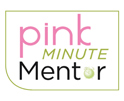
Karen Powell – Founder & CEO, Decor and You

This entrepreneur doesn’t believe the sky is falling. Her glass is at least half full.
By Taylor Mallory
“It’s a challenging time, but we’ve been through this before,” says Karen Powell, founder and CEO of franchise company Décor and You. While she says the recession is definitely changing the industry – especially the retail side, as many home décor stores are closing their doors for good – it’s not all bad, she says. “People are starting to rethink how they invest in their homes. They stay home more, so they’re investing in it more so they enjoy it and retain its value,” she explains. “For us, this time can actually be very good for business.”
Here she discusses franchising during tough times – and shares some of her best success secrets.
PINK: How are you supporting franchisees who are struggling in this economy?
Karen Powell: We’re providing more cost-effective training for franchisees – a virtual classroom with educational modules they can do 24/7 and not have to travel. We’re looking at doing our annual conference virtually to minimize expense for us and franchisees. This way we’re cutting costs, but I’m not about to stop supporting our franchisees.
PINK: What’s the best business advice you’ve ever received?
K.P.: Make the best decision you can and then don’t look back. Look back to learn from it but not to say “what if.” Keep moving forward. That’s what I’ve tried to do at each step. Then if I need to make another decision, I do, but I don’t dwell on the past. Owning your own business is the American Dream, and I needed to find out for myself if I could do this. I didn’t want 10 more years to go by and say I wish I had. People are always looking for the perfect time. You can come up with a list of reasons why now is not the time, but you can also come up with a list of things that make it the right choice. Better to act on it than have it be an unfulfilled desire.
PINK: How are you attracting more franchisees despite the economy?
K.P.: We’re an attractive option right now, because it’s a relatively low investment compared to other franchise companies [less than $65,000, including operating capital for the first six months]. It’s home-based. We train on decorating and design, vendor/partner relationships, marketing and business systems. We’re also finding some independent decorators who’ve been struggling on their own and who are coming over because of the brand and structure we offer. And more people are getting into business ownership. Some jobs are not going to be there anymore after the recession is over, and more people will look at business ownership as another option. You’re starting to hear and see that a bit more. Another major reason people come into our business is they decide to make a change – usually because they’re tired of working for someone else. Before time goes too far along, they want to do something for themselves, be more in control, do something they enjoy. Now is a good time to go for it. We also have executive models for people who want to develop a team to do the design work.
PINK: How do you balance life and work?
K.P.: It’s important to know yourself and your own rhythms. I’m a morning person, so if I have challenges I need to tackle, I try to schedule my time thinking about it and working on it in the morning when I’m at my best. The best way I keep in balance is my calendar. What’s scheduled gets done; what doesn’t lives as a good idea. Exercise is important to me, so I schedule it in. Besides, I get some of my best ideas when I’m out walking. It’s important not to look at thinking like it’s a luxury. It makes me a better businesswoman. And while I need to make sure my business is covered, I don’t even have a BlackBerry. After dinner, it’s over for me. I’m not in the medical industry where there are life-and-death situations. You can’t operate out of crisis management forever.
PINK: What’s the biggest business lesson you had to learn?
K.P.: How to communicate better with my clients – balancing sales with guiding my customers. There were times early in this business when a client was asking if I could do something I knew wouldn’t get them where they wanted to be. Even though I knew it wasn’t the best thing for them, I’d do it. I had to learn how to better communicate what was really in their best interest, to help them see me as not just a salesperson but someone who wanted to help them get the best possible end-product.
PINK: How do you define “success”?
K.P.: The more you do, the more there is to do. So for me, it’s that at the end of the day, I can say I’ve tackled some big issues, that I have a plan in place or am coming up with a plan. Am I moving forward?














